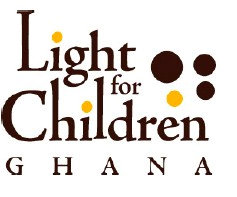- Education Topics
- Achievement Gap
- Alternative Education
- American Education Awards
- Assessment & Evaluation
- Education during COVID-19
- Education Economics
- Education Environment
- Education in the United States during COVID-19
- Education Issues
- Education Policy
- Education Psychology
- Education Scandals and Controversies
- Education Reform
- Education Theory
- Education Worldwide
- Educational Leadership
- Educational Philosophy
- Educational Research
- Educational Technology
- Federal Education Legislation
- Higher Education Worldwide
- Homeless Education
- Homeschooling in the United States
- Migrant Education
- Neglected/Deliquent Students
- Pedagogy
- Sociology of Education
- Special Needs
- National Directories
- After School Programs
- Alternative Schools
- The Arts
- At-Risk Students
- Camps
- Camp Services
- Colleges & Universities
- Counties
- Driving Schools
- Educational Businesses
- Financial Aid
- Higher Education
- International Programs
- Jewish Community Centers
- K-12 Schools
- Language Studies
- Libraries
- Organizations
- Preschools
- Professional Development
- Prom Services
- School Assemblies
- School Districts
- School Field Trips
- School Health
- School Supplies
- School Travel
- School Vendors
- Schools Worldwide
- Special Education
- Special Needs
- Study Abroad
- Teaching Abroad
- Volunteer Programs
- Youth Sports
- For Schools
- Academic Standards
- Assembly Programs
- Blue Ribbon Schools Program
- Educational Accreditation
- Educational Television Channels
- Education in the United States
- History of Education in the United States
- Reading Education in the U.S.
- School Grades
- School Meal Programs
- School Types
- School Uniforms
- Special Education in the United States
- Systems of Formal Education
- U.S. Education Legislation
- For Teachers
- Academic Dishonesty
- Childcare State Licensing Requirements
- Classroom Management
- Education Subjects
- Educational Practices
- Interdisciplinary Teaching
- Job and Interview Tips
- Lesson Plans | Grades
- Professional Development
- State Curriculum Standards
- Substitute Teaching
- Teacher Salary
- Teacher Training Programs
- Teaching Methods
- Training and Certification
- For Students
- Academic Competitions
- Admissions Testing
- At-Risk Students
- Career Planning
- College Admissions
- Drivers License
- Educational Programs
- Educational Television
- High School Dropouts
- Higher Education
- School Health
- Senior Proms
- Sex Education
- Standardized Testing
- Student Financial Aid
- Student Television Stations
- Summer Learning Loss
Light for children(LIFOC)

Basic Information
Address: P O BOX KS 740,Kumasi,Ghana
Phone Number: 233 0244690843
Email: info@lightforchildren.com
Director: Mike Owusu
Action Shots
* There are currently no photos associated with this listing.
Additional Information
Causes Served: education,health,human rights,summer school,child abuse prevention workshop,
Clearances Required: No
Background Check: Yes
Population Served: vulnerable children,out-of school-teens,HIV positive children,orphanages,basic school children
Ages for Volunteer: 17 minimum and 60 Maximum
Hours of Service: 20 to 35 hours per week
Minimum Hours of Service Required: No minimum. We recommend at least 20 hours per week.
Days of Service: 5 days per week on average (usually Monday to Friday)
Languages: English
Languages used as a Medium: English
Experience Required:
Depends upon placement. Some placements require no experience.
Programs Open To: Anyone aged 17 or older.
Travel Arrangements:
Volunteers arrange own flights. Light for Children arranges transportation from Accra to placement, including overnight accomodation if necessary.
Participants Work: Orphanages, schools, hospitals, etc.
Application Process:
Available on our website
Visa Requirements:
Volunteers arrange visas before travelling; Light for Children assists with letters of invitation or other information as needed.
Program Highlights:
Sexual Abuse awareness -- volunteers give interactive presentations in schools.
Orphanage -- volunteers feed, bathe, and play with babies and young children
Computer literacy -- participants work with junior high school students.
hospital -- volunteers are placed according to their qualifications and interest
Customized programs are also possible for volunteers.
Mission Statement:
We strive to:
1) Educate and raise local and global awareness of the lives of vulnerable children in the Ashanti Region.
2) Engage a global community of young people with the view of vulnerable children empowering a sense of understanding and hope.
3) Enable the deprived children, their families and their marginalized communities to meet their basic needs.
Philosophy/Belief Statement:
Light for Children invisions a future where children in Ghana have healthy, happy and productive lives, which enables them to realize and pursue their full potential.
Program History:
Light for Children was set up in 2005 as a support group for children infected and affected by HIV. From this small beginning, it grew and developed into child-centered organization. LIFOC is a registered organization without religious or political affiliation. It seeks the welfare of needy and disadvantaged children and also focuses on community and humanitarian services.
Social Networks: Facebook

